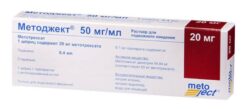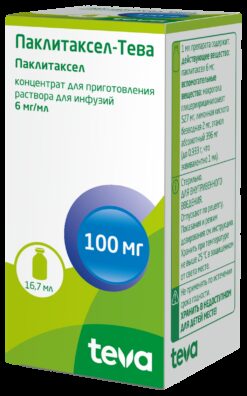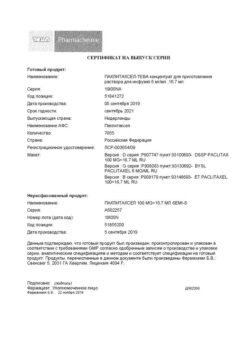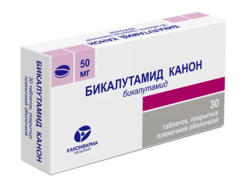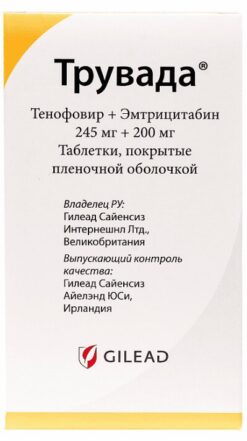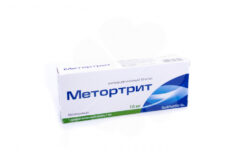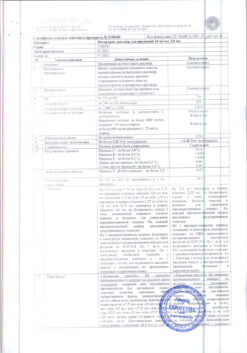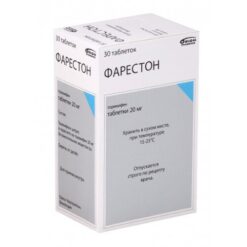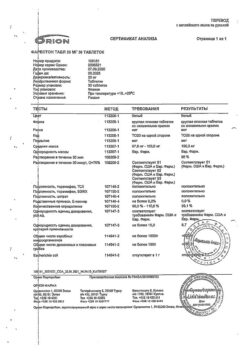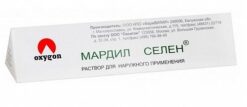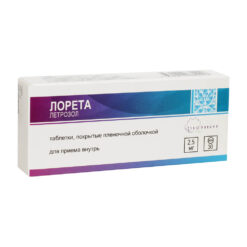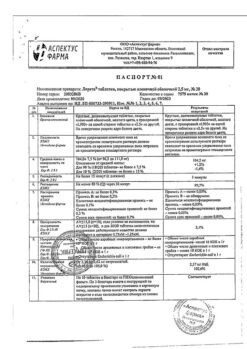No products in the cart.
Description
Pharmacodynamics
Zitiga® reduces serum concentrations of testosterone and other androgens below those obtained with lu-liberin agonists or after orchidectomy.
This is due to selective inhibition of the CYP17 enzyme, which is required for androgen biosynthesis. Prostate-specific antigen (PSA) concentration serves as a biomarker in patients with prostate cancer.
The mechanism of action of Abiraterone acetate in vivo is converted to abiraterone, which is an inhibitor of androgen biosynthesis. In particular, abiraterone selectively inhibits the activity of the enzyme 17α-hydroxylase/C17,20-lyase (CYP17).
This enzyme is expressed and is essential for androgen biosynthesis in the testes, adrenal glands and prostate tumor cells. CYP17 catalyzes the conversion of pregnenolone and progesterone by 17α-hydroxylation and breaking the C17,20 bond into testosterone precursors: dehydroepiandrosterone and androstenedione, respectively.
The inhibition of CYP17 activity is also accompanied by increased synthesis of mineralocorticoids in the adrenal glands.
Androgen-sensitive prostate cancer responds to treatment that reduces androgen concentrations. Anti-androgen therapy, such as the use of lu-liberin agonists or orchidectomy, attenuates androgen synthesis in the testes, but does not affect androgen synthesis in the adrenal glands or in the tumor.
The use of Zitiga® in conjunction with lu-lyberine agonists (or orchidectomy) reduces serum testosterone concentrations to below the threshold of determination.
The percentage of patients who experienced a palliative analgesic effect was significantly higher with Zitiga® compared to the placebo group.
In addition, compared to patients who received placebo, a smaller proportion of patients who received Zitiga® had progression of pain.
The risk of bone complications
As compared to the placebo group, a smaller proportion of patients who received Zitiga® had bone damage, which included pathological fracture, spinal compression, palliative bone irradiation, and bone surgery
Bone damage/p>
Pharmacokinetics
The pharmacokinetics of abiraterone acetate and abiraterone were studied in healthy volunteers, in patients with late-stage metastatic prostate cancer and in non-oncology patients with renal or hepatic impairment.
Abiraterone acetate in vivo is rapidly converted to abiraterone, which is an inhibitor of androgen biosynthesis.
Absorption
When Zitiga® is taken orally on an empty stomach, the time to reach maximum plasma concentration of abiraterone is approximately 2 hours.
The intake of Zitiga® with food, compared to the intake on an empty stomach, results in a 10-fold increase in the area under the concentration-time curve (AUC) and a 17-fold increase in maximum abiraterone concentration (Cmax), depending on the fat content of food taken.
In view of the normal variety of food content and composition, taking Zitiga® with food has the ability to have a variety of systemic effects. Therefore, Zitiga® should not be taken with food.
Distribution
The plasma protein binding of labeled 14C-abiraterone is 99.8%. The apparent Vd is approximately 5630L, indicating that abiraterone is actively distributed in peripheral tissues.
Metabolism
When administered orally, 14C-abiraterone acetate in capsules, abiraterone acetate is hydrolyzed to abiraterone, which in turn undergoes metabolism, including sulfation, hydroxylation, and oxidation, primarily in the liver.
Most of the circulating 14C-abiraterone (approximately 92%) was in the form of metabolitesobiraterone. Of the 15 detectable metabolites, each of the two major metabolites, abiraterone sulfate and N-oxide abiraterone sulfate, accounted for 43% of the total radioactivity.
Excretion
According to studies with healthy volunteers, the average T1/2 of abiraterone in plasma is approximately 15 hr. When orally administered 14C-labeled abiraterone acetate at a dose of 1 g, approximately 88% of the radioactive dose was excreted through the intestine and approximately 5% was excreted by the kidneys.
The main substances found in the feces were unchanged abiraterone acetate and abiraterone (approximately 55% and 22% of the administered dose, respectively).
Particular patient groups
Patients with hepatic impairment
The pharmacokinetics of abiraterone were studied in patients with mild to moderate hepatic impairment (Child-Pugh class A and B, respectively) and in healthy volunteers.
The systemic effects of abiraterone after a single oral dose of 1 g increased by approximately 11% in patients with mild hepatic impairment and by 260% in patients with moderate hepatic impairment.
The mean T1/2 period of abiraterone increased to approximately 18 h in patients with mild hepatic impairment and to approximately 19 h in patients with moderate hepatic impairment.
In patients with mild hepatic impairment, no adjustment of the drug dose is required.
The drug Zitiga® is not recommended for patients with moderate to severe hepatic impairment (Child-Pugh class B or C) because the necessary dose adjustment cannot be predicted in this case.
Therefore, Zitiga® should be used with caution in patients with moderate hepatic impairment only if the benefits of treatment clearly outweigh the possible risks.
Zitiga® should not be prescribed in patients with severe hepatic impairment. Patients who develop hepatotoxicity during therapy with the drug may require temporary withdrawal of the drug and dose adjustment.
Patients with renal failure
The pharmacokinetics of abiraterone were compared in patients with end-stage renal failure receiving a standard hemodialysis regimen and in patients with normal renal function.
The systemic effects of abiraterone acetate were not increased after an oral dose of 1 g in terminal renal failure patients receiving hemodialysis.
Patients with severe renal impairment of prostate cancer should use Zitiga® with caution because there are no clinical data about its use in these patients.
Impact on the QT interval
The drug Zitiga® was found to have no significant effect on the QT/QTc interval.
Indications
Indications
To treat metastatic castration-resistant prostate cancer (in combination with prednisolone).
Active ingredient
Active ingredient
Composition
Composition
1 tablet contains:
Active ingredients:
abiraterone acetate 250 mg.
Associates:
Lactose monohydrate – 198.65 mg,
microcrystalline cellulose – 141.22 mg,
croscarmellose sodium – 42.9 mg,
povidone (K29/K32) – 35.75 mg,
sodium lauryl sulfate – 28.6 mg,
/p>
colloidal silicon dioxide – 7.15 mg,
magnesium stearate – 10.73 mg.
How to take, the dosage
How to take, the dosage
Doses
The recommended daily dose of Zitiga® is 1 g (4 tablets of 250 mg) once daily 1 hour before a meal or 2 hours after a meal.
The tablets should be swallowed whole, without chewing, with plenty of water.
The drug Zitiga® is used together with low doses of prednisolone. The recommended dose of prednisolone is 10 mg/day.
Zitiga® should not be taken with food.
It is not recommended to eat for 1 hour after taking the drug.
Serum transaminase activity and bilirubin concentration should be measured before starting treatment with Zitiga®, every 2 weeks for the first 3 months of therapy, and monthly thereafter. BP, blood potassium concentration and fluid retention should be assessed monthly.
If another daily dose of Zitiga® is missed, prednisolone should be taken the next day with the usual dose of the missed drug.
Dose adjustment in patients with hepatic impairment
Dose adjustment in patients with mild hepatic impairment is not necessary.
There are no data on the efficacy and safety of abiraterone acetate when used repeatedly in patients with moderate to severe hepatic impairment (Child-Pugh class B or C), so it is impossible to predict necessary dose adjustments.
The drug Zitiga® should be used with caution in patients with moderate hepatic impairment and only if the benefits of treatment clearly outweigh the possible risks. Zitiga® should not be used in patients with severe hepatic impairment.
If during the treatment by the drug patients developed signs of hepatotoxicity (increase of ALT or AST activity 5 times higher than the upper limit of normal or concentration of bilirubin 3 times higher than the upper limit of normal), therapy should be stopped immediately until complete normalization of liver function parameters.
Retreatment in patients with normalized liver function parameters can be started with a reduced dose of 500 mg (two tablets) once daily. In this case control of serum transaminase activity and bilirubin concentration should be carried out at least every two weeks during three months and then monthly.
If signs of hepatotoxicity occur at a dose of 500 mg, therapy with Zitiga® should be discontinued.
If patients develop severe hepatotoxicity (ALT or AST exceeds 20 times the upper limit of normal) during any period of therapy, Zitiga® should be discontinued and cannot be re-treated in these patients.
Patient special groups
Patient use in patients with hepatic impairment
In patients with mild hepatic impairment (Child-Pugh class A) before treatment, no adjustment of the drug dose is necessary.
Zitiga® should be used with caution in patients with moderate hepatic impairment and only if the benefit of treatment clearly outweighs the possible risk.
The drug Zitiga® should not be prescribed in patients with severe hepatic impairment, Child-Pugh class B and C.
Patient use in patients with renal impairment
There is no need for dose adjustment in patients with impaired renal function.
Patients with severely impaired renal function in prostate cancer should use Zitiga® with caution, however, because there are no clinical data about its use in these patients.
Children
The use of ZitiGA® is not appropriate for children because this age group does not have prostate cancer.
Interaction
Interaction
In in vitro studies it has been shown that abiraterone inhibits hepatic isoenzymes involved in drug metabolism – CYP1A2, CYP2D6 and CYP2C8.
The drug Zitiga® is recommended with caution in patients receiving drugs which are metabolized by CYP2D6 isoenzyme, especially for drugs with narrow therapeutic index.
In these cases, dose reduction of drugs with a narrow therapeutic index that are metabolized by CYP2D6, including drugs such as metoprolol, propranolol, desipramine, venlafaxine, haloperidol, risperidone, propafenone, flecainide, codeine, oxycodone and tramadol should be considered.
There are no clinical data on the use of Zitiga® with the drugs which are substrates of CYP2C8 isoenzyme (e.g. paclitaxel and repaglidine).
Based on in vitro data abiraterone is a substrate of CYP3A4 isoenzyme. Caution should be exercised when concomitant administration with strong CYP3A4 isoenzyme inhibitors (ketoconazole, itraconazole, clarithromycin, atazanavir, nefazodone, saquinavir, telithromycin, ritonavir, indinavir, nelfinavir, voriconazole) and inducers (phenytoin, carbamazepine, rifampicin, rifabutin, rifapentine, phenobarbital).
In a study of the pharmacokinetic interaction of a strong CYP3A4 isoenzyme inducer on healthy volunteers, rifampicin, 600 mg daily for 6 days and then a single dose of abiraterone acetate 1000 mg, the mean plasma AUCâ of abiraterone was reduced by 55%.
The co-administration of Zitiga® and strong inducers of CYP3A4 isoenzyme (e.g., phenytoin, carbamazepine, rifampicin, rifabutin, rifapentine, phenobarbital) should be avoided. Prescribing this group of drugs is possible only after careful evaluation of clinical effectiveness.
In clinical pharmacokinetic studies in healthy volunteers, concomitant administration of ketoconazole, a strong CYP3A4 inhibitor, had no clinically significant effect on the pharmacokinetics of abiraterone.
Special Instructions
Special Instructions
Supplementation of Zitiga® with food significantly increases absorption of abiraterone. Efficacy and safety of Zitiga® taken with food have not been established. Zitiga® should not be taken with food.
Hypotension, hypokalemia, and fluid retention due to excess mineralocorticoids
The drug Zitiga® may cause BP elevation, hypokalemia, and fluid retention due to increased mineralocorticoid concentration due to CYP17 enzyme inhibition. Corticosteroid administration attenuates the stimulatory effects of adrenocorticotropic hormone (ACTH), which reduces the frequency and severity of these adverse reactions.
Perhaps caution should be exercised when treating patients whose clinical condition may worsen with elevated BP, development of hypokalemia, or fluid retention (e.g., in patients with heart failure, recent myocardial infarction, or ventricular arrhythmias).
The drug Zitiga® should be used with caution in patients with a history of cardiovascular disease. The drug safety in patients with left ventricular ejection fraction < 50% or with heart failure III-IV functional class according to NYHA classification has not been established.
Before initiating the use of Zitiga, hypokalemia and high BP should be corrected.
The BP, plasma potassium concentration and degree of fluid retention should be monitored at least once a month.
Hepatotoxicity and liver function impairment
In clinical studies, there have been significant increases in liver enzyme activity that required cancellation or adjustment of the drug dose.
The activity of serum transaminases and bilirubin should be measured before starting the use of Zitiga®, every two weeks during the first three months of treatment and then monthly. Serum transaminase activity should be measured immediately if clinical symptoms and signs suggestive of impaired liver function develop.
If ALT or AST levels are 5 times the upper limit of normal, or bilirubin concentrations are 3 times the upper limit of normal, Zitiga® should be stopped immediately, and liver function should be monitored closely.
The drug Zitiga® should not be used again until liver function return to baseline values, and only if lower doses are prescribed.
If patients develop severe hepatotoxicity (ALT or AST activity exceeds 20 times the upper limit of normal) during any period of therapy, Zitiga® should be discontinued and cannot be re-prescribed in such patients.
Dose adjustment in patients with mild hepatic impairment is not required. There are no data on the efficacy and safety of repeated use of abiraterone acetate in patients with moderate to severe hepatic impairment (Child-Pugh class B or C), so the need for dose adjustment cannot be predicted.
The drug Zitiga® should be used with caution in patients with moderate hepatic impairment only if the benefit of treatment clearly exceeds the possible risk. Zitiga® should not be used in patients with severe hepatic impairment.
The withdrawal of glucocorticosteroids (GCS) and stress management
When withdrawing prednisolone, caution should be exercised and signs of insufficient adrenal function should be monitored. If use of Zitiga® continues after withdrawal of GCS, the appearance of symptoms of mineralocorticoid excess should be monitored.
In patients receiving prednisolone, an increased dose of glGCS may be required before, during and after a stressful situation.
The concomitant administration of Zitiga® and chemotherapy
The safety and effectiveness of concomitant administration of Zitiga® and cytotoxic chemotherapy have not been established.
Information about some excipients in Zitiga®
The drug contains 1 mmol (27.2 mg) of sodium in each dose (four tablets), which must be considered when treating patients on a sodium-controlled diet.
Impact on ability to drive vehicles and other mechanisms requiring high concentration
The drug Zitiga® has no or negligible effect on the ability to drive and operate moving mechanisms.
Contraindications
Contraindications
With caution:
lactase deficiency,
lactose intolerance,
glucose-galactose malabsorption;
Patients with severe renal impairment from prostate cancer should use Zitiga® with caution, because there is no clinical data available about its use in these patients;
Patients who may be worsened by increased BP or hypokalemia, such as those with heart failure, recent myocardial infarction, or ventricular arrhythmias, should be treated with caution; left ventricular ejection fraction less than 50%, heart failure class III-IV according to NYHA classification.
Side effects
Side effects
The most common adverse events during treatment with Zitiga® are peripheral edema, hypokalemia, hypertension, urinary tract infections, hematuria, increased AST activity, increased ALT activity, dyspepsia, fractures.
The adverse reactions are systematized relative to each of the organ systems using the following frequency classification:
Infectious diseases: very frequent – urinary tract infections.
Endocrine system disorders: infrequent – insufficiency of adrenal function.
Impact on the results of laboratory tests: very common – hypokalemia; frequent – hypertriglyceridemia, increased ALT activity, increased AST activity.
Skeletal and connective tissue disorders: frequent – fractures (except for pathological fractures).
Renal and urinary tract disorders: frequent – hematuria.
Cardiovascular system disorders: very common – increased BP; common – heart failure, including acute heart failure, left ventricular failure, decreased left ventricular ejection fraction; angina, arrhythmia, atrial fibrillation, tachycardia.
Respiratory system disorders: rare – allergic alveolitis.
Gastrointestinal tract disorders: frequent – dyspepsia.
General disorders: very frequent – peripheral edema.
Overdose
Overdose
There are limited data on overdose with Zitiga®.
There is no specific antidote.
In case of overdose, Zitiga® should be discontinued and general supportive measures, including arrhythmia control, should be taken.
Liver function should also be monitored.
Pregnancy use
Pregnancy use
Zitiga® is not used in women. There are no data on the use of Zitiga® in pregnant women. Zitiga® is contraindicated in pregnant women and women who can become pregnant. It is not known whether abiraterone acetate or its metabolites are excreted with milk.
Women of childbearing age
The drug Zitiga® is not indicated for use in women. It is suspected that taking CYP17 inhibitors in pregnant women will change hormone concentrations, which may affect fetal development.
In order to prevent accidental exposure, pregnant or fertile women should not handle the drug without gloves.
Contraception in men and women
It is not known if abiraterone or its metabolites are present in semen. A condom must be used if intercourse with a pregnant woman is planned. If intercourse is planned with a woman of childbearing age, a condom must be used along with other effective contraceptive methods.
Confertility
There have been no studies of the toxic effects of abiraterone acetate on the reproductive system and no data on the effect of the drug on fertility.
Additional information
| Weight | 0.134 kg |
|---|---|
| Shelf life | 2 years. |
| Conditions of storage | Store in the original container out of the reach of children at a temperature not exceeding 30 ° C |
| Manufacturer | Pateon Inc, Canada |
| Medication form | pills |
| Brand | Pateon Inc |
Related products
Buy Zitiga tablets 250 mg, 120 pcs. with delivery to USA, UK, Europe and over 120 other countries.


